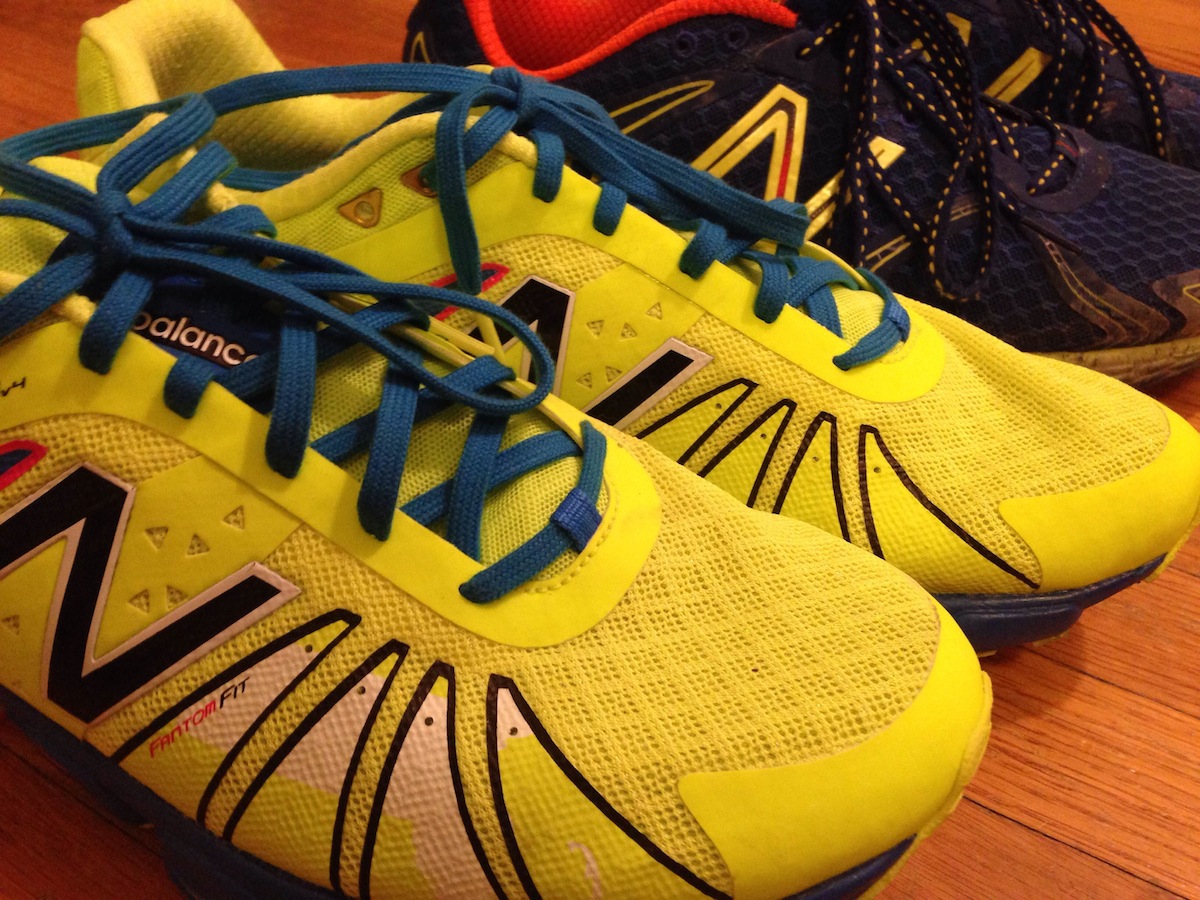New Balance Could Benefit from Department of Defense’s Latest Rule Change

Photo by Steve Annear
If the shoe fits, New Balance could soon have its logo on more military members’ feet all across the country.
Thanks to a policy shift announced by Pentagon officials last week, new active duty soldiers entering boot camp will be supplied with U.S.-produced footwear when using a voucher given to them by the government to purchase shoes for training purposes.
“We are excited about the potential path forward for New Balance with the Department of Defense policy change that requires American-made athletic shoes for our country’s soldiers. This decision will create more American jobs at manufacturers and suppliers in Maine and Massachusetts, and across the country,” said Matt LeBretton, the company’s vice president of public affairs, in an email.
The Department of Defense’s policy change is the result of a years-long push by U.S. Representative Niki Tsongas, D-Lowell, and representatives in Maine, to ensure that soldiers have access to domestically manufactured products, keeping in line with the Berry Amendment.
Congress passed the Berry Amendment in 1941, requiring that military apparel and other service goods be made in the United States whenever possible. Since 2002, however, through a loophole, the Department of Defense has spent roughly $180 million on a cash allowance program for military recruits entering boot camp to buy their own training shoes to fit their various needs, leading to purchases of foreign-made products.
Tsongas said the money could have been funneled into local brands and the economy, and also led to government savings. “Innovative companies, such as New Balance right here in Massachusetts, are able to provide our service members with quality products and keep business here on American soil,” Tsongas said in a statement this week.
Because of the loophole, companies have been tepid about diving head-first into a military-centric market to produce an all-American shoe. In 2013, the Boston Business Journal reported that New Balance, which has a factory in Tsongas’s district, had acquired speciality manufacturing equipment to get their shoes on track. Wolverine Worldwide, a Michigan-based company that produces brands like Saucony, had also been pushing for Department of Defense changes so they could similarly roll out shoes for recruits. Both were hesitant to forge ahead, however, until federal officials made a change.
But the policy shift creates a new playing field for manufacturers, and one they’re happy to tackle given the new incentive. New Balance, one of two American-based companies along with Wolverine Worldwide, has the capability to produce footwear that fully complies with the Berry Amendment’s standards, and is optimistic about the opportunity to possibly provide active military personnel with their training sneakers. Five other shoes companies in the U.S. have also voiced interest in lacing up their efforts to produce shoes. “This policy change will boost job growth, spur economic development and innovation, and give the brave men and women of our armed forces better gear. It is a win all around,” Tsongas said.
The manufacturing process will also have a trickle-down effect since suppliers that work directly with New Balance—such as foam producers—would require more workers on hand if and when orders increase. “We look forward to moving through the implementation process and competing to provide our American military with the very best in U.S.-made athletic shoes,” LeBretton said in a statement.
New Balance owns and operates five footwear factories in New England, according to the company. Two of those factories are in Massachusetts, and three are located in Maine. LeBretton said Tsongas has been a champion for U.S. manufacturing throughout the course of her career, something New Balance representatives are thankful for. “It’s time that our troops are outfitted in high quality athletic footwear that is made in America,” he said.


